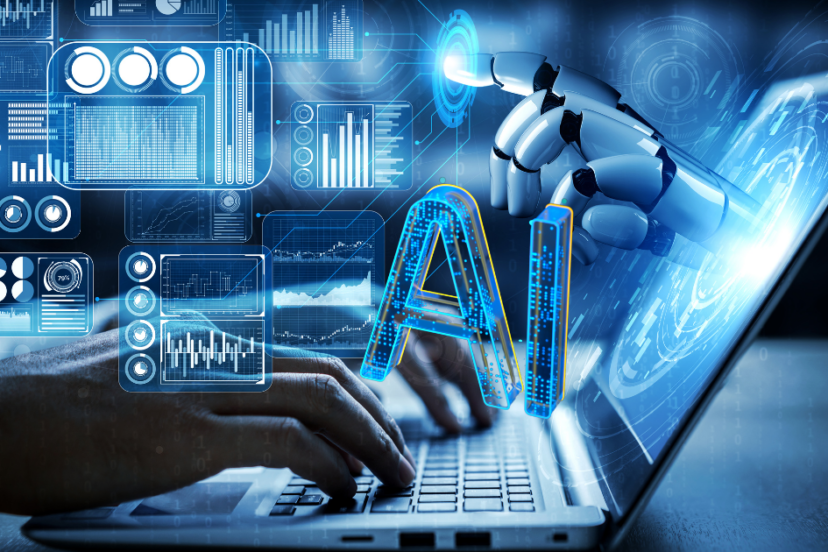Artificial Intelligence Facts
Artificial Intelligence, often abbreviated as AI, has become one of the most transformative technologies of the 21st century. It has impacted various aspects of our lives, from healthcare to entertainment, and from education to finance. In this article, we will embark on a journey through the fascinating realm of AI, as we uncover the 15 Most Amazing Artificial Intelligence Facts that will leave you astounded and inspired. Whether you’re a tech enthusiast or just curious about the future, these mind-boggling facts about AI are sure to pique your interest and ignite your imagination. So, fasten your seatbelts and get ready to be amazed!
What is AI?
Artificial Intelligence simulates human intelligence in machines to execute activities that humans do. This includes problem-solving, pattern recognition, decision-making, and learning. Through algorithms, neural networks, and vast amounts of data, AI systems can self-learn and improve their functions over time mimicking how humans learn.
Amazing Artificial Intelligence Facts
1. AI Origins and Growth:
Artificial Intelligence (AI) traces its origins back to ancient times, but it truly began to flourish in the mid-20th century. The term “artificial intelligence” was coined in 1956 at the Dartmouth Conference. Since then, AI has experienced remarkable growth, evolving from rule-based systems to machine learning and deep learning, with neural networks becoming a cornerstone of modern AI.
2. Machine Learning’s Role:
Machine learning is a subset of AI that enables systems to learn and improve from experience without being explicitly programmed. This paradigm shift has significantly impacted various industries, allowing algorithms to analyze vast datasets and make predictions or decisions, ranging from image recognition in healthcare to fraud detection in finance.
3. Natural Language Processing (NLP) Advancements:
Natural Language Processing is a field of AI that focuses on the interaction between computers and humans through natural language. Recent advancements, such as transformer models like GPT-3, have elevated NLP, enabling machines to generate coherent and contextually relevant human-like text, revolutionizing chatbots, language translation, and content creation.
4. AI in Healthcare:
AI has made significant inroads in the healthcare sector, aiding in diagnostics, drug discovery, and personalized medicine. Machine learning models can analyze medical images, detect anomalies, and predict patient outcomes, improving the accuracy and efficiency of medical processes.
5. Robotics and Automation:
The integration of AI with robotics has led to the development of intelligent machines capable of performing complex tasks. From manufacturing to healthcare, robots equipped with AI algorithms can enhance precision, efficiency, and safety in various industries.
6. Ethical Concerns in AI:
The rapid advancement of AI has brought forth ethical considerations. Issues like bias in algorithms, job displacement due to automation, and the responsible use of AI technologies are subjects of ongoing debate. Striking a balance between innovation and ethical considerations is crucial for the responsible development of AI.
7. AI in Autonomous Vehicles:
The automotive industry has embraced AI for the development of autonomous vehicles. Machine learning algorithms process data from sensors and cameras, enabling cars to navigate, make real-time decisions, and enhance road safety.
8. DeepMind’s Breakthroughs:
DeepMind, a subsidiary of Alphabet Inc., has achieved significant breakthroughs in AI. Notably, AlphaGo, a program developed by DeepMind, defeated a world-champion Go player, showcasing AI’s capability to master complex games and strategic thinking.
9. AI in Financial Services:
The financial sector leverages AI for fraud detection, algorithmic trading, and customer service. Machine learning algorithms analyze vast financial datasets, providing insights that aid in risk management and decision-making.
10 AI’s Role in Environmental Conservation:
AI is contributing to environmental conservation efforts. From monitoring deforestation using satellite imagery to analyzing animal behavior patterns, AI technologies assist in gathering and processing data for better understanding and management of ecosystems.
11. Humanoid Robots and Social Interaction:
Advances in AI have led to the creation of humanoid robots capable of social interaction. These robots can understand and respond to human emotions, facilitating their integration into various roles, including companionship for the elderly and support in healthcare.
12. AI in Education:
AI is transforming education through personalized learning experiences, adaptive assessment systems, and intelligent tutoring. These technologies cater to individual student needs, providing a more effective and engaging educational environment.
13. AI’s Role in Drug Discovery:
The pharmaceutical industry benefits from AI in drug discovery and development. Machine learning models analyze biological data, identify potential drug candidates, and streamline the research process, potentially accelerating the pace of medical breakthroughs.
14. AI in Creative Industries:
AI is making waves in creative fields such as art and music. Generative models can produce unique artworks, and AI algorithms can compose music, challenging traditional notions of creativity and expanding the possibilities of human-AI collaboration.
15. The Quantum AI Intersection:
The intersection of AI and quantum computing holds the promise of solving complex problems at an unprecedented speed. Quantum algorithms may enhance machine learning processes, revolutionizing AI capabilities in the near future. As both fields progress, their synergy opens up new frontiers in computation and problem-solving.
Conclusion
The world of Artificial Intelligence is teeming with wonder and potential. From its inception in the 1950s to its omnipresence today, AI has continually pushed the boundaries of what is possible. As we navigate the future, understanding and harnessing the power of AI is not just a matter of choice but a necessity. Its impact on society, technology, and our lives is undeniable, and staying informed about the latest developments in AI is essential. These 15 remarkable Artificial Intelligence facts are just a glimpse of the incredible journey this technology has embarked upon.
FAQs
What is the difference between AI and machine learning? Answer: AI is the broader concept of machines exhibiting human-like intelligence, while machine learning is a subset of AI that focuses on algorithms improving with data.
How is AI being used in the education sector? Answer: AI is enhancing education through personalized learning, intelligent tutoring systems, and automating administrative tasks.
Can AI replace human creativity in art and music? Answer: While AI can generate art and music, it can’t replicate the depth of human creativity, as it lacks emotions and personal experiences.
Is AI biased, and how can it be mitigated? Answer: AI can inherit biases from data. Mitigating bias involves careful data curation and algorithmic fairness.
Will AI take over all human jobs? Answer: AI may automate certain jobs, but it also creates new ones. Adaptation and learning new skills are key to remaining relevant in the job market.




